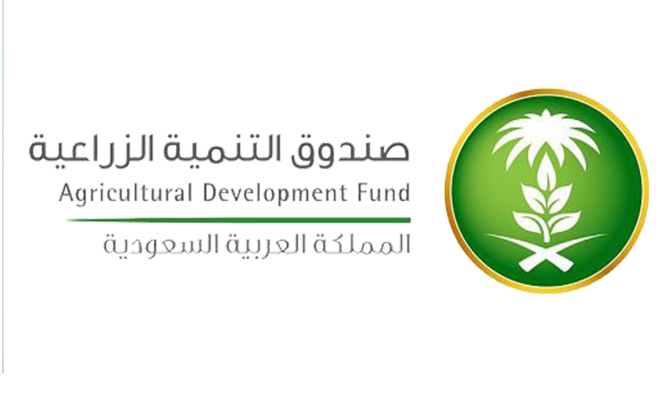RIYADH: Saudi Arabia’s Agricultural Development Fund has approved loans worth more than SR333 million ($87.8 million) to finance 12 projects in a number of regions of the Kingdom and import foodstuff.
The projects include vegetable cultivation, poultry, and date factories, as well as importing rice, yellow corn and soybeans.
These projects come within a package of urgent financial initiatives and measures being launched by the Kingdom to support the private sector and contribute to reducing the economic impact of the coronavirus disease (COVID-19) pandemic.
Munir bin Fahad Al-Sahli, director general of the fund, said that agricultural loans worth more than SR91 million were approved to finance 10 projects within the working capital funding initiative that includes operational loans for vegetable cultivation projects in air-conditioned greenhouses, as well as operational loans for projects in the poultry sector and projects for date factories. The fund also agreed to finance two loans to import rice, yellow corn and soybean crops. SPA Riyadh
Saudi agriculture fund OKs over $87.8 million loans
https://arab.news/8929z
Saudi agriculture fund OKs over $87.8 million loans

- The projects include vegetable cultivation, poultry, and date factories, as well as importing rice, yellow corn and soybeans
Saudi Arabia embassy resumes diplomatic activities in Afghanistan

- Afghan foreign ministry welcomes Kingdom’s decision to resume diplomatic operations in Kabul
- Saudi Arabia to 'provide all services to the brotherly Afghan people'
RIYADH: The Saudi embassy in the Afghani capital, Kabul, resumed its diplomatic activities on Sunday.
"Based on the desire of the government of the Kingdom of Saudi Arabia to provide all services to the brotherly Afghan people, it has been decided to resume the activities of the mission of the Kingdom in Kabul starting on December 22," the embassy posted on X platform on Sunday.
The Afghan foreign ministry on Monday welcomed Saudi Arabia’s decision to resume its diplomatic operations in Kabul, more than three years after Riyadh withdrew its staff during the Taliban takeover of Afghanistan.
“We are optimistic about the possibility of strengthening relations and cooperation between Saudi Arabia and Afghanistan through the resumption of these activities,” said Afghan foreign ministry spokesman Zia Ahmad in a statement.
“We will also be able to respond to the problems of Afghans residing in Saudi Arabia.”
Riyadh had posted its decision to resume diplomatic operations in Kabul on social media platform X.
“Based on the desire of the government of the Kingdom of Saudi Arabia to provide all services to the brotherly Afghan people, it has been decided to resume the activities of the mission of the Kingdom in Kabul starting on December 22,” it said.
Ties between Saudi Arabia and Afghanistan date back to 1932 when the Kingdom became the first Islamic country to provide aid to the Afghan people during their ordeals.
In recent years, Saudi Arabia launched numerous projects in Afghanistan through its humanitarian arm KSRelief, focusing on aid relief, health, education services, water and food security.
Riyadh also participated in all international donor conferences and called for establishing security and stability in Afghanistan following years of armed conflicts.
Saudi Arabia withdrew its diplomats from Kabul in August 2021 when the Taliban returned to power in Afghanistan following the US withdrawal from the country.
However, it said it was resuming consular services in the country in November 2021 and also provides humanitarian aid through its King Salman Relief Center organization.
Saudi delegation led by Royal Court advisor meets with Syria’s Al-Sharaa

- Earlier this week, Al-Sharaa praised progress made by Saudi Arabia
RIYADH: A Saudi delegation headed by an advisor from the Royal Court met with the head of the new Syrian administration, Ahmed Al-Sharaa, at the People’s Palace in Syria on Sunday, according to an Al Arabiya report.
Earlier this week, Al-Sharaa praised progress made by Saudi Arabia and neighboring Gulf countries in an interview with Asharq Al-Awsat.
“We admire the development in Gulf countries, particularly Saudi Arabia’s bold plans and vision, and we aspire to achieve similar progress for Syria,” he told the newspaper’s Bissane El-Cheikh during an interview the the Presidential Palace in Damascus.
“There are many opportunities for cooperation, especially in economic and developmental areas, where we can align our goals,” he added.
Shattering expectations: Saudi artist’s journey into glass art

- Aseel Al-Maghlouth breaks glass to break through in the local art scene
RIYADH: Saudi artist Aseel Al-Maghlouth is hammering a niche for himself by using glass as his canvas.
He stumbled upon the technique while working on his graduation project in mechanical engineering. “I discovered the potential to employ broken glass to create distinctive artistic designs,” he told Arab News.
The intricate details that appear when glass breaks inspired him to create shapes and visuals and developed a technique that reflected his artistic vision.

Al-Maghlouth had a love for drawing from a young age, but it was not until he discovered his ability to express ideas in unconventional ways that his true passion for art crystallized.
“I have always drawn inspiration from the surrounding nature and the intricate details of daily life,” he said. This connection to his environment, combined with his experiences in exploring artworks, helped shape his unique style.
He finds beauty in the mundane and translates that into his creations, often using glass to convey emotions and narratives that might resonate with viewers.
HIGHLIGHT
By embracing the fragility of glass and transforming it into something beautiful, Saudi artist Aseel Al-Maghlouth challenges perceptions of what art can be.
Al-Maghlouth has gained significant recognition on social media, where his works are widely admired.
This newfound fame has allowed him to sell his works and create custom pieces for clients, including various artists and celebrities. “Creating for such esteemed individuals is an honor, and it motivates me to push my artistic boundaries,” he said.

“The best work I own is the painting of Crown Prince Mohammed bin Salman. Frankly, I consider it the most valuable painting I have ever owned, but I refuse to sell it because it was a special gift from me to the crown prince,” he said.
“I have received many offers but I refuse to sell it. As for the rest of my paintings, I prefer not to mention the prices because the value of art for me is not limited to a number. Each painting has its own place and story that distinguishes it.”
One of the greatest challenges Al-Maghlouth faced as an artist was transforming his creations into messages that resonated with his audience. “The biggest challenge was ensuring that my art conveyed a clear idea,” he said.
I want to highlight the beauty of arts in our Saudi culture and connect it with Saudi Vision 2030.
Aseel Al-Maghlouth, Saudi artist
Through experimentation with the nature of glass fractures and the control of his technique, he minimized errors and created pieces that told meaningful stories.
Each strike of the hammer is deliberate, aimed at producing not just a fragment but a narrative that can be interpreted and appreciated by those who view it.
“I want to highlight the beauty of arts in our Saudi culture and connect it with Saudi Vision 2030,” he added, emphasizing the importance of cultural representation in his work.
Al-Maghlouth’s vision for the future is ambitious. He aspires to participate in international exhibitions, representing Saudi Arabia on a global stage. “I dream of organizing a personal exhibition in Riyadh to showcase my works and exchange inspiration with other artists,” he said.
For emerging artists, Al-Maghlouth has simple yet profound advice: “Don’t be afraid of trial and error. Each piece of art reflects a part of you.”
He encourages newcomers to continue developing and learning from every experience, and emphasizes the importance of perseverance in the face of challenges.
His journey is testament to the idea that creativity flourishes in an environment where risks are taken and failures viewed as stepping stones rather than obstacles.
Al-Maghlouth’s work serves as a reminder that art can emerge from the most unexpected materials and methods, encouraging others to explore their creativity without constraints.
By embracing the fragility of glass and transforming it into something beautiful, he challenges perceptions of what art can be.
Al-Maghlouth remains committed to honoring the stories behind each piece, proving that even the most broken fragments can come together to create something truly extraordinary.
Saudi Joint Forces commander meets Yemeni Presidential Leadership Council member for security cooperation talks

- Meeting focused on strengthening cooperation between Joint Forces Command and Yemeni Presidential Leadership Council
RIYADH: Lieut. Gen. Fahd bin Hamad Al-Salman, commander of the Joint Forces, met with Faraj Salmeen Al-Bahsani, member of the Yemeni Presidential Leadership Council, at the Joint Forces Command headquarters in Riyadh on Sunday.
The meeting focused on strengthening cooperation between the Joint Forces Command and the Yemeni Presidential Leadership Council, the Saudi Press Agency reported.
Discussions also centered on enhancing the ongoing support provided by Saudi Arabia through the Joint Forces to promote security and stability in Yemen.
During the reception, Al-Bahsani commended the Kingdom’s role in supporting Yemen’s efforts to achieve stability.
He emphasized the importance of continuing strategic cooperation between the two countries to address the challenges currently facing Yemen.
Al-Bahsani thanked the Saudi leadership for their unwavering support across various fields, noting that this collaboration plays a vital role in advancing stability in Yemen and the wider region, SPA reported.
The meeting underscored the Kingdom’s commitment to fostering peace and stability in Yemen as part of its broader efforts to address regional security challenges, SPA added.
Saudi justice minister announces comprehensive legal system development project

- The minister highlighted a range of training programs offered by the Judicial Training Center and Saudi Bar Association, targeting law graduates and practicing lawyers
RIYADH: The Ministry of Justice, in collaboration with the Saudi Bar Association, has announced the launch of a comprehensive project to review and develop the lawyers’ system, according to Saudi Justice Minister Walid Al-Samaani.
The project aims to strengthen the legal profession by empowering practitioners, improving access to legal services, and keeping up with the Kingdom’s legal, social and developmental advances, Al-Samaani, also chairman of the association, said.
On Sunday, Al-Samaani inaugurated the first Saudi Lawyers Conference in Riyadh, themed “Developments in the Lawyers and Legal Consultations Sector.”

With participation from government and private entities, the two-day conference focuses on the future of the legal profession within the Kingdom’s evolving legislative landscape.
It also highlights the significant impact of professional and educational developments on enhancing the local legal environment and fostering a vibrant business and investment climate.
About 30 experts and specialists are participating, leading discussions on various aspects of the profession. On Monday, 19 workshops will be held, led by specialists to enrich attendees’ knowledge and professional experience.
Al-Samaani said that the renewal of law licenses will be processed automatically and completed within 15 days of a complete application, aiming to empower and support lawyers.
He said that the demand for lawyers had grown significantly and would likely continue with the Kingdom’s expanding business landscape and ongoing developments.
“This growth is tied to strengthening institutional work, enhancing legal foundations, and developing model contracts, documentation systems and legislative tools,” he said.
The minister highlighted a range of training programs offered by the Judicial Training Center and Saudi Bar Association, targeting law graduates and practicing lawyers.
These programs combine practical and theoretical training, including the Lawyer Qualification Program, Lawyer Development Program, Saudi Professional Accreditation for Legal Practitioners, and Cooperative Training Program for university students, among others.






















